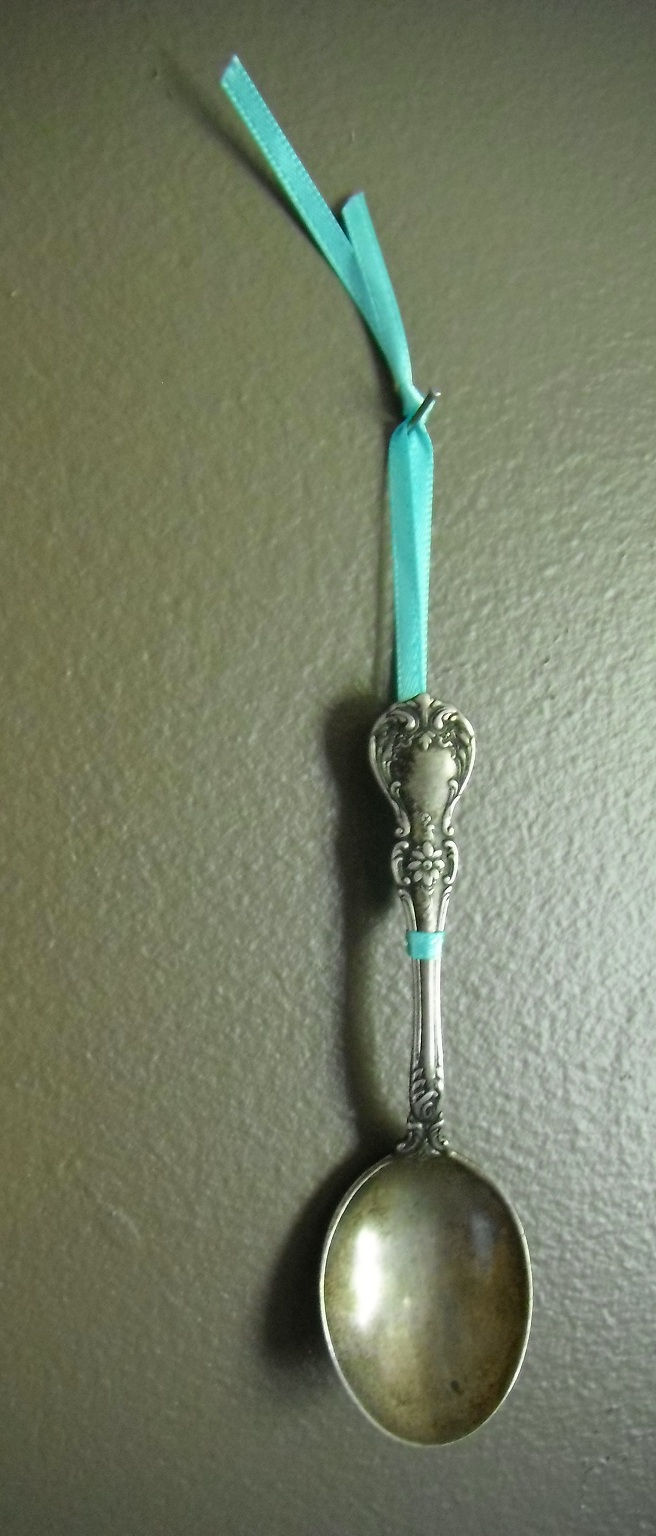Oh, I know you think you don’t need help. I know you think the problem lies with everyone else. I know you think that you have life figured out and the rest of us have to catch up.
I know of your childhood. I know it was awful. Someone – your mom or dad – had you believing you weren’t good enough. In order to survive, you pretended to be good enough. You created an image of some kid you thought your parents wanted you to be. Or you created a self that was tough, impenetrable and cavalier so as to protect yourself. At the end of each school year, more and more layers were added to this image.
By the time you graduated, you couldn’t wait to get out of their house. You had survived, but you forgot who you were. You packed your bags – the clothes belonging to the guy you created – and your ways of behaving, and you left to start your adult life.
Every time you met a new person, you presented your fake self. Your parents had told you that you weren’t good enough, who else would think you would be good enough? And besides, you forgot who that kid was – the kid who never got a chance to spread his wings and be himself. So you continued to approach every new relationship as a fake.
Many times, you found someone who was charmed by that fake. (That’s me, remember?) And because I took the bait, you figured your image was working – that you’d found someone to love this improved version of you. And when I agreed to buy into this image, you were afraid to show me the real you. There was/is too much fear in letting your guard down. What if you admitted to weakness or vulnerability or humanness – what if you dared to show the real you – and I didn’t love you anymore? You couldn’t take that chance.
In the end, I couldn’t love an imposter. I don’t know what I would have done if you had shown your true self. We’ll never know. The image you portrayed left me feeling empty – as if I had fallen in love with a shiny, vain, hollow shell.
Because you have approached every relationship as an imposter, it is impossible for anyone to get close to you – especially your kids. When your kids don’t want to see you, you are left wondering why they don’t want to spend time with your fabulous self, and then you assume that I am preventing them from seeing you. They don’t want to see the constructed, polished image of you. You are not this fabulous impersonator – this image you have portrayed since you were in survival mode as a kid.
They want to know who YOU are – warts, vulnerabilities, hurts, and all. They want what is real. They can smell real. They could smell it as soon as they could walk and they have known since then that you were hiding real.
When you can be human with them, they can be free to be human with you.
Your kids feel alienated just as you did when you were young. Because of your narcissistic lack of empathy, you can’t see their hurts. You can’t see how they crave a relationship with a caring, involved, compassionate father.
They know you are coming from a place of deep hurts. Do you want the same for them? Do you want them to grow up never feeling good enough? Do you want them to come from that same place of deep hurts?
Get over your self. Get over your fake self!
Stop this cycle.
Get some help!
Tags: a girl can dream, child of narcissist, front lines, narcissism, narcissist behavior, narcissistic behavior, NPD, Parenting























Wow Jesse, this is an incredibly powerful piece! I got completely emotional reading it. I wish this was something he could read; sit with, accept, make his peace with his past, and “get help.” The actress Diane Carroll once said everyone has a story. Bad things unfortunately happen to some of us. Sometimes from the hands of those meant to love & nurture us. She went on to say we can control how long we are going to be a victim in our story. At what point do we move on to a place of healing, which does require work to create a new, healthy, sound story. For me I do work everyday, therapy as well to work through things so my past doesn’t have to be my present. It’s hard and uncomfortable, but essential. If he could fully accept his parents didn’t do a great job, deprecate from their role as parents maybe they weren’t perfect people. Maybe they needed to get help, and chose not. Their scars unfortunately became yours, but they would only remain until there’s healing. He has two pretty amazing children who don’t deserve to be scarred, and because of one really amazing mom I think their hurts, although they’ll happen, will not be overlooked. She will nurture and love them. She will continue to comfort and protect them. She will make sure they know its not you, dad just needs help. Until he acknowledges it, the three of you can hopefully lean on the comfort that no fault lies with you. We are deserving of real ness.
I think this every time my son is on the phone with him. It’s ssoooo fake! The repetitive conversation with the same greetings, same endings, syrupy sweetness in case someone is listening, makes me cringe. And he has a hard time realizing that our son is now almost 11, not 5. He plays along with his dad on the phone and never discusses the difficulty of dealing with him in public, but there will be a day when he says, “Get over your fake self!”
Kira,
I love it when you bless us with one of your heartfelt comments.
As I reread your comment, a thought crossed my already crowded brain.
The thing about narcissism is that it leaves its victims/survivors so beat down and short of confidence that they don’t realize that they CAN re-write their own story!
I want to shout that from the mountaintops! You can be real and write your own healthy real story. Yes, it is hard work. Yes, it may be uncomfortable, as you say, Kira. But the story doesn’t have to end the way it started!
Thanks, dear, for sharing your experience and wise words.
Z,
When Jen and Will are on the phone with their dad, their eyes glaze over and their hands make the “yakking” gesture while they are caught in the trap of politely listening. Disrespectful? Yes. Does their dad know? No. It’s another example of the subtle humor they share to survive this crap.
I love sharing hear when I can. I gain so much from you & others here as well. And yes we need to shout from the mountain tops, “We can change our stories.”
I think it’s a balancing act really. It’s one thing when we rid our lives of the problem. There’s a certain freedom that is created, because you no longer have to engage, and no longer risk getting hurt or feeling drained. Good example: If you had a friend who’s a narcissist, even though it may be upsetting, it might be easier to sever that relationship. You may examine all the things that aren’t working, and that isn’t healthy.
You all are doing that right now, but you all are also trying to balance having this person in your lives. He is no longer your husband thankfully (you deserve beyond better) but he is still your children’s father. The hard part is that role for your kids can’t change. Hence, the focus goes back to the response. I couldn’t help but smile at both Jen’s and Will’s handling of phone exchanges with their dad. It’s how they deal. I can only hope (using word loosely, but optimistically) that he can be the father they deserve to have. Jesse you have no idea how impactful you simply being you helps your children. I couldn’t imagine how much harder it may be for them without your presence.
I think I have shared this here before, but it’s relevant again. There was a time when my ex-N was vulnerable and open to counseling shortly after we separated. I had a long conversation with him about his narcissism and empathized with him when I explained that when his parents abandoned (in a sense, they were trying to make a new life in America, but had to leave the kids behind and did with an irresponsible adult… but to a little boy, it was abandonment) him in Jamaica, it caused this angst in him. It was the source of his ways and perhaps if he could confront his parents about how this affects him now, it would be helpful. He spoke to his counselor about it and she encouraged this. He called his parents and explained it all to them and instead of owning it, they denied it had anything to do with them. My heart broke for him that day because he was so close to some reconciliation…and then I took cover. I knew that I would be the one to bear the blame forever. It was almost instant and you could feel the cold creeping in. *shiver*
Can I just say how much I LOVE this sentence –> You are not this fabulous impersonator – this image you have portrayed since you were in survival mode as a kid. Jesse, you’ve put into such simple words what so many people take YEARS trying to describe what a narcissist is to another person. It’s brilliant and impactful.
I’m having other woes at the moment which relate back to the N, but really have to do with the husband wanting his own “perfect world.” Anxiety was always a problem with him as a child, but it was never addressed because the N was his primary caregiver. So now as an adult he is still dealing with anxiety, and our kids have also inherited it. It’s like a big ugly anxiety tornado when it gets all stirred up. I made the suggestion of myself, him, & our oldest going to a counselor to address it, but he completely went into denial mode. So to save my own sanity I’ve had to tell him that he’s going to have to see to his own mental health so I can concentrate on myself & the kids. History has shown that when I express concerns about him he just doesn’t handle it well & most of the time gets angry. I’ve heard this thing called male pride has quite a bit to do with that.
Stress is just such an evil, insidious thing in our lives. I’m hoping at some point it will lessen.
Kira,
Thank you.
And I’d like to add more in an effort to build on your words.
For all those going through this same kind of hell…
It IS a balancing act. The first part is identifying what you are dealing with. (That’s huge.) The second is removing yourself from that person (if possible – like in the example you gave of a friend) as much as is possible given the nature of the relationship. Another important point is that you have to understand how you operate in that kind of relationship. What default settings did you acquire while relating to a narcissist? Do you always acquiesce? Do you willingly put yourself last? Have you forgotten your passions or preferences?
Some more work comes in when we find out who we are outside of relating to a narcissist. Let me tell you… that is hard but delicious/exciting work!
And THAT IS when the story changes!!
Z,
And so the cycle continues…
My heart breaks for the little boy inside him who tried to reach out for the love and acceptance he deserved, only to have his hand slapped and be dismissed one more time.
And for you… to come so close to some sort of potentially healthy outcome.
I feel that same shiver.
Yes, I remember you sending this and it bears repeating. Again and again…
Jenn,
Thanks for the kind words.
Oh… anxiety. I remember what that feels like. (Still occasionally experience it at the hands of narcissists.)
I remember the nervous ticks and changing clothes several times a day to try to please dad. I remember the constant distress in the stomach. Yeah. Anxiety is a wicked one – especially for little people who have yet to develop coping skills.
And I would guess that your husband feels anxious at the mention of his anxiety because it reminds him of criticisms from when he was a kid? Now that’s a vicious circle. How do you compassionately address his anxiety without sounding like you are criticizing? Because we know that kids of narcissists are sensitive to criticism anyway.
Your approach is excellent – focus on your own mental health thereby hopefully creating a calm home environment. And the calm you create in the home might help him with his anxiety? It’ll certainly help the kids.
The grandson remarks, ” Wow, wouldn’t it be fun to live in Paris? I am learning French in school.”
She responds, “Ireland is better. They speak english, but your parents won’t let me take you.”
Does she really not see at this moment that engaging him in conversation is more important than expressing her opinion? Can she not see the hurt look on his face?
He moves on…
“Grandma, did you know that the baseball player we know got selected for the all-stars team?”
There is a quiet. Then, she says “Have you read Catcher in the Rye?”
He has missed his mark again.
How many times must a 13 year-old try to reach his grandmother? How many conversations should he initiate? Should he be mad at his dad for not getting along with this woman? He knows that he should have some sort of relationship with her, but what will it cost? Do his parents expect it? His father certainly must not as he avoids his mother when she comes to visit. His own mother tries to encourage the grandmother to learn about her grandkids. Why is grandma only concerned about telling of her experiences? Why does she take them to the coolest places only to spoil it by not participating? Why does her best friend care more about he and his sister than his grandmother does?
BECAUSE SHE IS A NARCISSIST.
It looks good to travel 1000 miles to see your grandchildren. It’s a bonus for her when she can throw in that she “puts up with her rotten son” in order to see them. Is her son rotten? No. BUT it adds to the drama.
The boy hears his grandma telling her best friend “I am never coming back here. It hurts my stomach too much to endure this.”
The boy has matured enough to know.. it’s not him, it’s not his fault. It’s one persons’ need to be the center of attention. Is he too young to learn this? No. Some learn much earlier…
But he now knows where not to focus his energy…
Dee,
Thanks for sharing your story. Another perspective of narcissism in the family.
What a joy it must be to raise such a grounded young man. He’s sorting things out on his own. He sees what’s in front of him and his compass tells him that what he sees is not right and does not feel good.
Oh, to learn at such a tender age, who to invest in and who to stay away from. That will spare him a lot of grief. Better to learn that now!
Your story is further proof that children are wise beyond their years.
p.s. Doesn’t it feel so damn good to get that off your chest?!